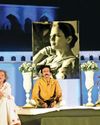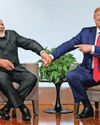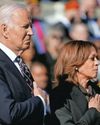While the economic gains of currency demonetisation will take time to be seen, Modi's political gains are immediate.

Former chief election commissioner S.Y. Quraishi was at Ashoka University in Sonepat, Haryana, on November 9 to deliver a lecture on democracy and elections. He had lunch at the canteen with Gopalkrishna Gandhi, who teaches history at the university. Quraishi did not offer to pay for Gandhi’s lunch because he had in his wallet just ₹100 and a few pieces of paper. It did not matter that those pieces of paper were, till a few hours earlier, worth ₹500 or ₹1,000 each in legal tender.
“To fight corruption in elections this is the most brilliant move anyone could have made,” said Quraishi, referring to the government’s sudden decision to demonetise ₹500 and ₹1,000 currencies. When he took over as CEC in June 2010, he mentioned money power in elections, along with voter apathy, as the biggest challenge. “Our theory is that abuse of money power in elections is the source of all corruption in the country. To spend money that is not accounted for, they collect by means fair and foul, and there is a quid pro quo. And anecdotally we know they spend up to 100 times the ceiling,” he said.
It was a masterstroke from Prime Minister Narendra Modi, with which he possibly converted ₹14.17 lakh crore into “worthless pieces of paper”, and wiped out black money and fake currency that the government knew had been used to fund terrorist activities. “It is a great move, and we have been arguing for it in the past three years,” said Dr Shamika Ravi, senior fellow at the think tank Brookings India.
Chartered accountant P. Sivaram called it an “involuntary disclosure” scheme which came a month after the government’s voluntary income disclosure scheme. “It is good politics and good economics,” he said. All money will come into the banking system, which became the tracking point, he added.
Esta historia es de la edición November 20, 2016 de THE WEEK.
Comience su prueba gratuita de Magzter GOLD de 7 días para acceder a miles de historias premium seleccionadas y a más de 9,000 revistas y periódicos.
Ya eres suscriptor ? Conectar
Esta historia es de la edición November 20, 2016 de THE WEEK.
Comience su prueba gratuita de Magzter GOLD de 7 días para acceder a miles de historias premium seleccionadas y a más de 9,000 revistas y periódicos.
Ya eres suscriptor? Conectar

Olympics, 2036: Host And Ghosts
The Indian Olympics Association (IOA) has sent the International Olympics Committee (IOC) its ‘letter of intent’ to host the Olympics in 2036—appositely enough the centenary of the very year, 1936, when Adolf Hitler hosted the Games in Berlin!

The female act
The 19th edition of the Qadir Ali Baig Theatre Festival was of the women and by the women

A SHOT OF ARCHER
An excerpt from the prologue of An Eye for an Eye

MASTER OF MAKE-BELIEVE
50 years. after his first book, Jeffrey*Archer refuses to put down his'felt-tip Pilot pen

Smart and sassy Passi
Pop culture works according to its own unpredictable, crazy logic. An unlikely, overnight celebrity has become the talk of India. Everyone, especially on social media, is discussing, dissing, hissing and mimicking just one person—Shalini Passi.

Energy transition and AI are reshaping shipping
PORTS AND ALLIED infrastructure development are at the heart of India's ambitions to become a maritime heavyweight.

MADE FOR EACH OTHER
Trump’s preferred transactional approach to foreign policy meshes well with Modi’s bent towards strategic autonomy

DOOM AND GLOOM
Democrats’ message came across as vague, preachy and hopelessly removed from reality. And voters believed Trump’s depiction of illegal immigrants as a source of their economic woes

WOES TO WOWS
The fundamental reason behind Trump’s success was his ability to convert average Americans’ feelings of grievance into votes for him

POWER HOUSE
Trump International Hotel was the only place outside the White House where Trump ever dined during his four years as president